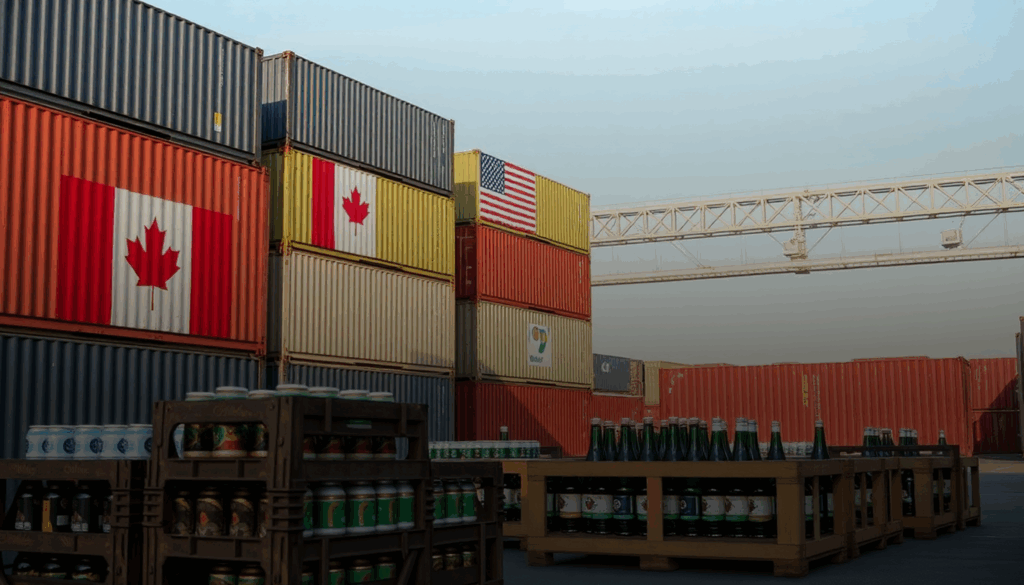Canada’s evolving tariff strategy in response to renewed US trade levies is reshaping the landscape for beverage businesses across the country. Recent updates reported by multiple sources confirm a recalibration of Canadian countermeasures against the United States, as the broader G7 economic dialogue and US inflationary effects come into play. For beverage producers, importers and retailers, these policy shifts signal a critical period of adjustment and strategic planning.
Summary of Regulatory Coverage
Pause on Some Canadian Counter Tariffs: According to CNA, Canada has temporarily paused tariffs on select US goods, particularly those used in food and beverage processing and packaging. While critics argue this move effectively reduced retaliatory tariffs to “nearly zero,” Finance Minister François-Philippe Champagne clarified that “70 per cent of those tariffs are still in place” and that relief measures were introduced to give domestic firms a six-month transition period. This temporary pause targets high-impact sectors without lifting the majority of Canada’s CA$60 billion in tariffs.
Inflation and Monetary Policy Tied to Trade Uncertainty: As FXS reports, Canada’s inflation slowed to 2.5% in April, largely due to falling energy prices following the removal of the consumer carbon price. However, food prices continue to outpace broader inflation, with store-bought food costs rising 3.8% year-on-year. The Bank of Canada cited US trade policy uncertainty as a core reason for pausing its interest rate cuts, warning that a prolonged trade war could push inflation above 3% and significantly affect household and business finances.
Tariffs Central to G7 Economic Talks: From France 24, coverage of the G7 Finance Ministers summit held in Alberta highlighted that while tariffs were not formally on the agenda, they remain embedded in discussions on global economic health. Canadian officials emphasised the need for coordination amidst volatile US policies, with Finance Minister Champagne noting that current tariffs “are a burden on the economy and job security.” The uncertainty around US-imposed levies continues to cast a long shadow over global economic strategy and growth forecasts.
US Beverage Exporters Adjust to Shifting Markets: The Drinks Business detailed how American wineries like Cakebread Cellars are pivoting in response to tariff pressures. While focused on the US domestic market, the report underscores how geopolitical tensions and shifting trade relationships are forcing producers to diversify sourcing and expand regional portfolios. This mirrors the choices Canadian beverage businesses may need to consider if cross-border trade remains unstable.
Impact on the Canadian Beverage Industry
The temporary pause on tariffs for food and beverage-related imports offers short-term relief for Canadian manufacturers reliant on US components or packaging. However, the reprieve is finite—businesses must assess alternative supply chains and prepare for the reinstatement of duties in late 2025.
Retailers and distributors may see price volatility ease in the short term, particularly for imported ingredients. Yet the wider inflationary pressure on food items suggests that cost management will remain a challenge, especially if trade tensions escalate again. Beverage exporters targeting US markets also face increased scrutiny, with the spectre of retaliatory tariffs or shifting US consumer preferences potentially disrupting sales and contracts.
In comparison to previous trade disputes, the current scenario is marked by policy ambiguity and economic fragility. Unlike the clearly demarcated NAFTA-era disputes, today’s landscape features rolling negotiations and partial pauses, leaving businesses with little long-term certainty.
Industry Outlook
The Canadian beverage sector must respond with agility. While the pause in tariffs creates a brief window for operational reassessment, businesses should proactively diversify suppliers, strengthen domestic logistics, and remain informed about policy changes. As government talks continue and inflation remains sensitive to global pressures, beverage companies that invest in resilience now will be best placed to navigate the next phase of trade relations.
